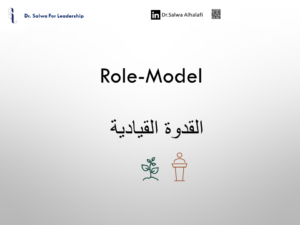Good luck with your discussion!
Here is my experience that may help or inspire you too🌷
My experience depends on several main factors:
1.You as a researcher.
2. Academic supervisor.
3. Research project.
4. Examiners.
5.Discussion.
The first factor: you as a researcher!
Passing the discussion is not an instant matter, but it starts with the beginning of the doctoral stage! So it is important:
• The depth of your knowledge of your project.
• Develop your skills during this stage (joining training courses, attending conferences, trying to publish research, discussing with colleagues in the stage, and listening to their experiences).
•Continuous reading and development in your research.
•Be determined and flexible.
The second factor: the academic supervisor.
•Building a good relationship with your supervisor depends on the quality of work you provide him.
•Be clear in your communication, such as:
•What resources might help me in this part?
•I couldn't understand this point, what do you mean?
•What do you think of this trend?
• Try to learn about your supervisor’s experience as a student, and ask for his advice. This will help you build a positive relationship and enrich your experience.
•Share your concerns and discuss solutions with him.
• Set a clear timeline and share it with him.
• Remember that you are the manager of your research project, not your supervisor, so at every meeting:
• List the points you want to discuss in advance and arrange them.
The third factor: the research project.
Your research project depends on several main points:
•The power of the tools used.
• Results.
•User analysis.
•The theory and how to employ it.
•Your personal story and identity in the research presentation.
To answer “why?”:
•Why did you choose this tool?
• Why did you interpret the results in this way?
•Why was the message presented in this way?
Remember to have strong justifications, as your knowledge of justifications reflects your awareness and abilities as a manager of your research project.
•Review your department's doctoral dissertation writing models and guides, read previous graduate dissertations and emulate their formatting.
The fourth factor: the examinees.
There is an internal and external examiner.
• Discuss with your supervisor your desire to select examiners who are clear and able to deal with international students.
• Tell your supervisor that you want the discussion to be a scientific dialogue, not a rigorous test, so that you can give your best.
•You can search for external examiners yourself, through:
• Review researchers who specialize in your topic.
• Ask students in research groups about the experience of specific examiners.
Warning: Direct communication with the external examiner is prohibited, but you can collect information about him indirectly.
Finally: discussion.
Preparedness:
•Discussion is not a memory test! (This was confirmed by my supervisor 😇).
•Your role is to explain your justifications and research options.
• Read your message carefully, imagine the questions you might be asked, and start preparing organized answers.
•Ask your supervisor to conduct a discussion experiment (FIFA) where he asks you questions and gives you feedback on your answers.
•Practice several times.
• Get a good night's sleep before the discussion.
•Do not forget to pray, supplicate, and read the Qur’an, as they are a source of reassurance at every moment.
On the day of the discussion:
•Dress smart and formal.
•Eat a good, healthy breakfast.
• Always remember that God sees your efforts and your work.
During the discussion:
Be calm, listen, and smile.
•If you do not understand a question, ask for clarification or rephrasing.
• Provide a clear answer that demonstrates your deep understanding of what you have written.
•Some questions are sometimes to test your understanding of what you have written, so be prepared to clearly state your intentions.
Discussion structure:
•The discussion usually consists of three parts:
1. Part One: Discussion lasting about an hour.
2. Short break.
3. Part Two: Continuing the discussion or announcing the result.
Discussion duration:
•Minimum one hour, maximum three hours.
•The usual duration is usually between one and a half and two and a half hours.
Don't be afraid of the long time! Time will fly by and you are on the cusp of achieving your goal, Dr.
Congratulations in advance🎉🎈
Dr. Salou Al-Halafi



